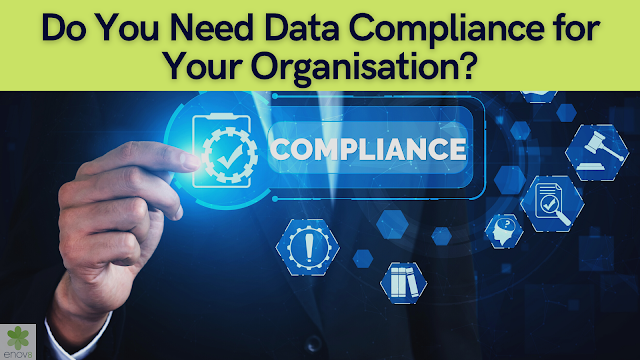Do You Need Data Compliance For Your Organization
A ransomware attack has exposed your customers' sensitive data, and now you need to develop
strategies to repair the damage.
To avoid such nasty situations, data compliance was introduced. So what's data compliance, and why they're incredibly important for your business?
Let's find out!
What Is Data Compliance?
Data compliance encompasses following different regulations and security standards to maintain the
integrity and availability of data you use for your regular business operations.
Data compliance standards focus on protecting sensitive data or personally identifiable information (PII).
Such information can identify a person directly or present someone's characteristics. Sensitive
information includes name, address, age, gender, personality traits, health data, financial data, etc.
Data compliance is an integral part of release management software processes. The best practices for data compliance needs to be enforced not just within your organization but while working with third-party vendors having access to PII.
Best Practices To Ensure Data Compliance
Following the best practices for data, compliance enables you to protect your data and demonstrate adherence to industry-standard protocols. So what are these industry-standard protocols? We will explain that later in this blog.
Also Read: 4 Data Challenges Solved By Test Data Management
First, let us take a look at data compliance best practices:
Ensure your data protection measures are updated and relevant
Maintain detailed records of data protection measures and executed audit procedures
Appoint an authoritative individual to manage data security and compliance standards workflows.
Use common controls framework to ensure Complying with security, privacy, and standards while reducing the risk of becoming over-controlling.
Why Is Data Compliance Important?
Data compliance is specifically important due to the following reasons:
Reduces Risk To Your Business
You need to regularly upgrade and audit your data protection and compliance policy to ensure organizational release management software processes align with appropriate data security standards.
Data breaches due to noncompliance can attract hefty financial penalties from regulatory authorities
and also lead to reputational loss.
Penalties are evaluated based on the number of individuals affected by the breach, the
degree of financial loss, and the level of negligence.
Helps Maintain A Positive Image
Financial losses are not uncommon during data complianceincidents. Apart from monetary loss, reputational damage in the market can be catastrophic.
An enterprise's unprofessional management of sensitive data is generally newsworthy and can instantly become a victim of public outrage. Reputational damages, in most cases, are irreversible.
Instils Trust Leading To Customer Retention
Compliance doesn't just involve following rules but strategizing and reinforcing practices that your
customers can trust. People are now more than informed about the sovereignty of the information
they share.
Prioritizing data compliance can translate into customer loyalty since it inspires trust.
Most Influential Data Protection Regulations And Standards
The top three most influential data protection regulations and Standards include the following
HIPAA
Previously known as the Health Insurance Portability and Accountability Act of 1996, HIPAA defines the data security standards for how businesses and providers venturing into the healthcare paradigm must handle patients' personal health information (PHI) to ensure its confidentiality and safety.
HIPAA applies to any entity dealing with healthcare data, from hospitals to drug safety testing institutes.
GDPR (General Data Protection Regulation)
The General Data Protection Regulation, simply called GDPR, was enacted by the EU to protect their
citizens' data from improper use and the right to know the data providers collect about them. It also lays one of the most stringent rules for reporting breaches and how to store and protect data.
PCI DSS
An independent entity, the Payment Card Industry Security Standards Council, developed and
introduced Payment Card Industry Data Security Standards (PCI-DSS). PCI DSS data compliance
standards encompass a set of contractual commitments enforced by the PCI SSC.
Conclusion
Data compliance is here to stay and will become more stringent in the future. Therefore, it is
recommended that you hire professional solutions to improve your data compliance practices.




Comments
Post a Comment